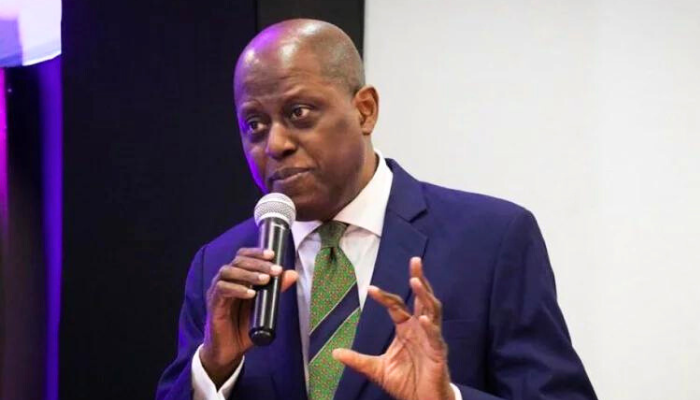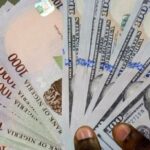The free fall of the naira has gone on for too long; the currency has fallen too fast and too low to an unacceptable level. From mid-June 2023, when the Nigerian currency was floated, till now, its value has plummeted from about N462 to the dollar, to the unfortunate level of about N1400, at the official market. At the parallel market, it is the same tale, with the currency falling from about N700 to as low as N1500.
The naira, which in the days of yore traded at par or even higher against some international currencies, has been falling like a piece of lead from the skies with no buffer to protect it. Amid this, there is an obvious gap in credible plans to salvage the currency.
This has destabilised the Nigerian economy and pushed the price of virtually every product and service out of the reach of millions of Nigerians. It has worsened the hunger in the land and pushed more people into poverty.
Daily Trust blames the naira’s woes on an amalgam of policy mismatches, inconsistency, and even a seeming lack of direction on the part of the government and its relevant agencies.
- APC defends Tinubu, says Nigeria’s problems generational
- Man arrested for alleged raping of 6-year-old girl in Minna graveyard
First, the floatation of the naira should have been done after robust consultations with stakeholders, with their opinions taken into account. However, it has become crystal clear that the decision was not discussed with the relevant stakeholders, including those outside the Central Bank of Nigeria (CBN). Such consultations would have considered, among other things, the potential consequences of letting the naira float at a time such as this.
Also, such a policy contemplation should have considered the sudden and unplanned removal of the fuel subsidy on May 29, 2023. That singular act has altered the Nigerian social and economic space. Ideally, it should not have been combined with another decision with a system-wide impact of this magnitude.
This wrong decision could also have been taken based on the faulty belief that the parallel market is an inconsequential size of the entire local foreign market. Officials of the regulator have been known to say the parallel market is just about 10% of the entire market.
With that view of the “black market”, CBN officials believe it is easy to stamp it out. This search for the convergence of the rates was one of the tools they hoped would help them achieve that. Six months down the line, they have discovered how erroneous their impression was.
Now, Nigerians are battling with the consequences of such an impulsive decision. We are not saying that it is wrong to seek a merger of the multiple exchange rates that have existed in the economy for quite some time now. There is a need to get that done given the difficulties they pose to monetary policy coordination. However, the urgency of this matter must be considered in the context of the importance of timing in policy implementation.
To address the consequences of these policy failures, the CBN has lately taken some measures. It issued revised Guidelines on International Money Transfer Services in Nigeria, which modified the 2014 guidelines on the activities of International Money Transfer Operators (IMTOs) in the country. One of the key reforms in the guidelines is the requirement that the recipient’s account of the money transferred will be credited at the prevailing exchange rate in the Nigerian Foreign Exchange Market (NAFEM).
It has also ordered banks to offload their excess dollar reserves. In a circular dated January 31, 2024, the central bank ordered banks to liquidate their excess dollar positions, giving them up to February 1 to comply. CBN warned the banks against the practice of hoarding foreign currency for speculative purposes.
To say the least, these actions and others by the regulator are addressing the symptoms of the problem. They have left the root causes of the problem. The truth is that Nigeria does not earn enough foreign currency to support its needs. The demand-supply gap has been worsened by recent policy mismatches.
This situation has led to speculations as to what the authorities are doing with the naira. Some people have even claimed that what is happening now is simply a deliberate devaluation of the naira. This, they say, makes financing the government very cheap, because any amount of dollar converted into naira now results in higher volumes of naira receipt.
That is why Daily Trust is concerned that the governor of the CBN and the Minister of Finance and Coordinating Minister of the Economy appear not to be worried over the fate of the naira, and the suffering this has brought upon Nigerians. So, we ask: Is this a deliberate plan to weaken the naira?
All said and done, from the narrative so far, it is clear that the government does not have a clear-cut policy to move this economy forward. The claim or explanation that the current hardship that Nigerians are going through is a result of reforms that the government is implementing is not the point. Rather, Nigerians are suffering because of the discordant approach to governance by this government, which seems to have compounded the problems it met on ground.
Daily Trust, therefore, calls on the government, its officials, advisers, and ministers to return to the drawing board and quickly too.

 Join Daily Trust WhatsApp Community For Quick Access To News and Happenings Around You.
Join Daily Trust WhatsApp Community For Quick Access To News and Happenings Around You.

